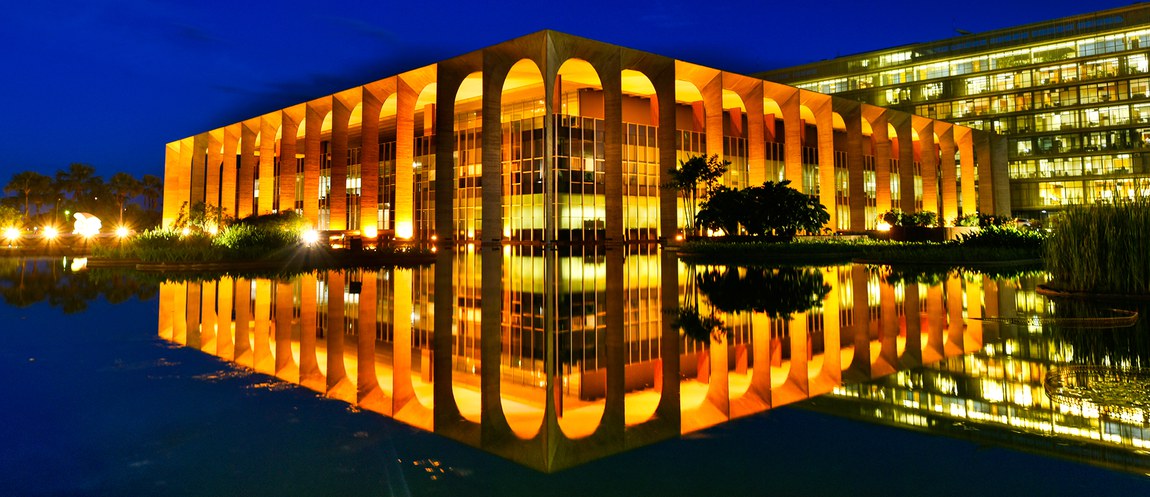The work has begun: G20 meetings are happening this week in Brasilia
Sherpa and Finance Tracks gather independently and hold a joint meeting to align issues that will be discussed throughout the year, in an unprecedent initiative in the history of G20. The format, which proposes the integration of social, environmental, and financial debates, is an innovation introduced by the Brazilian presidency of the Group

This week Brasil inaugurates the G20 meetings at the Itamaraty Palace, in Brasilia. The independent meetings will be held on December 11 and 12 (Sherpa Track) and on December 14 and 15 (Finance Track); on December 13, an unprecedent joint meeting will be held to align the issues that will be discussed throughout the year. In the previous editions, the meeting between the two tracks only happened during the final summits of the country presidencies. The anticipation of the joint meeting is an innovation of the Brazilian presidency, and will allow for intersections between the tracks to be mapped, and for common decisions among the social, environmental, and financial sectors to be forwarded.
The week’s agenda is composed by bilateral meetings and plenaries that will discuss the role of the group of the largest world economies in the global context. The program includes specific meetings to address issues pertaining to each track.
In the case of the Tracks’ joint meeting, in addition to the definition of the methodology and workflows for the year, there will also be discussions about the priorities of the Brazilian presidency throughout its mandate: combating hunger, poverty, and inequality; sustainable development and climate change; and reform of the global governance.
The meetings are closed, and only representatives from the member-states to each Track will be able to join. At the end of each day, Brazilian spokespersons will present a briefing of the issues discussed in each meeting.
"There will be an integration between two Tracks. The goal is to demonstrate our capacity to converge towards a leaders’ summit that can adopt the decisions negotiated throughout the period,” explained Mauricio Lyrio, secretary for Economic and Financial Issues of the Ministry of Foreign Affairs and Brazilian G20 sherpa, during a workshop for foreign journalists held in Brasilia.
Tatiana Rosito, secretary for International Issues of the Ministry of Finance and coordinator of the Finance Track, indicated that the Brazilian presidency of the summit is an opportunity to include social and environmental aspects in the financial agenda. “We seek to bring inequality to the center of the agenda. It is a great opportunity to look at the core of the economic and financial agenda through the lenses of a solidary globalization, of an ecologic transformation,” stated Rosito at the workshop.
The Sherpa Track meeting will gather the Sherpas of the member-states. The Sherpas are individual representatives from the G20 leaders who supervise the negotiations, discuss the items that compose the summit-s agenda, and coordinate most part of the work. In the Finance Track, participants are the Vice-ministers of Finance and Vice-presidents of the Central Banks of the member-states.
December 11 and 12 (9am to 4pm): G20 Sherpa Meeting;
December 13 (9am to 5:30pm): Joint Meeting of G20 Sherpas, Vice-Ministers of Finance and Vice-Presidents of Central Banks;
December 14 and 15 (9am to 4pm): Meeting of G20 Vice-Ministers of Finance and Vice-Presidents of Central Banks.
Over 100 working group and task force meetings of both Tracks (Sherpa and Finance) are expected to occur throughout the Brazilian presidency, both presential and online. They will happen at the technical and ministerial levels, in host cities in the five regions of Brasil. The hugh point will be the summit held in Rio de Janeiro.
About the G20
The financial theme is on the DNA of the G20. The Group was founded in 1999, after a sequence of international economic crisis: México in 1994, the Asian Tigers in 1997 (which particularly affected Thailand, Indonesia and South Korea) and Russia in 1998. The first summit of heads of State a d Government of the G20 was held at the peak of the crisis caused by the bankruptcy of the Lehman Brothers bank, in November 2008, in Washington (United States).
In the beginning, the G20 focused its priorities on wider macroeconomic questions, and then expanded its agenda to include other pressing issues, such as Sustainable Development, Health, Agriculture, Climate Change, Energetic Transition, and Combating Corruption, among others.
